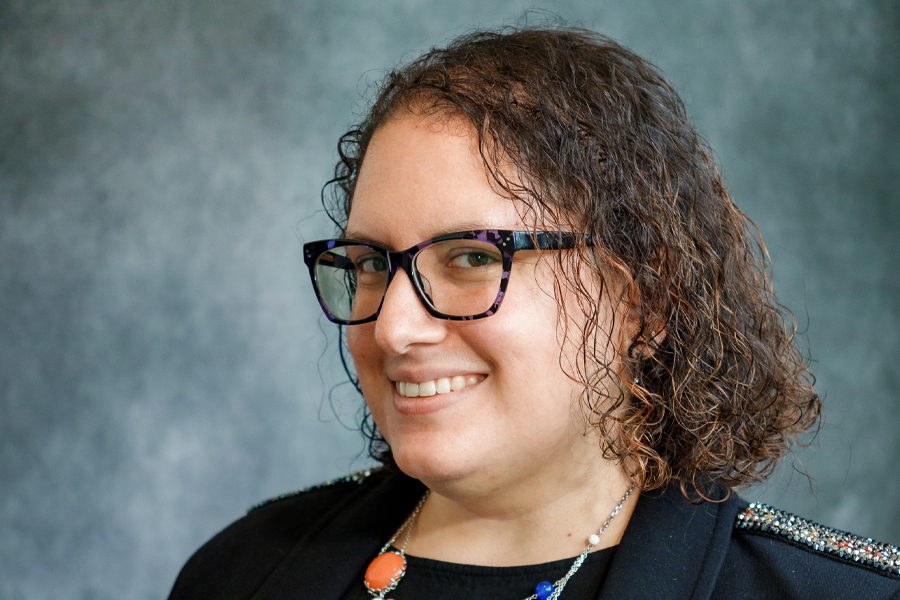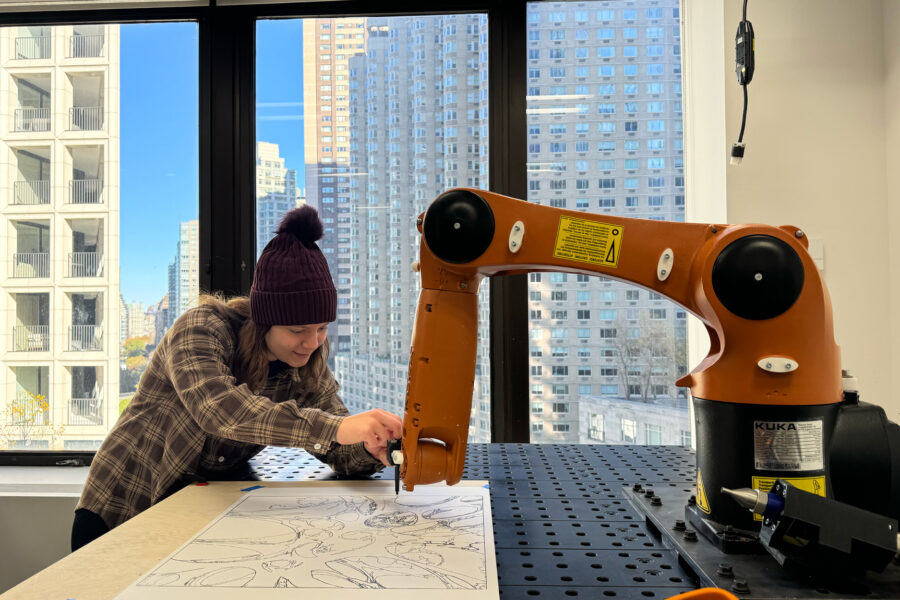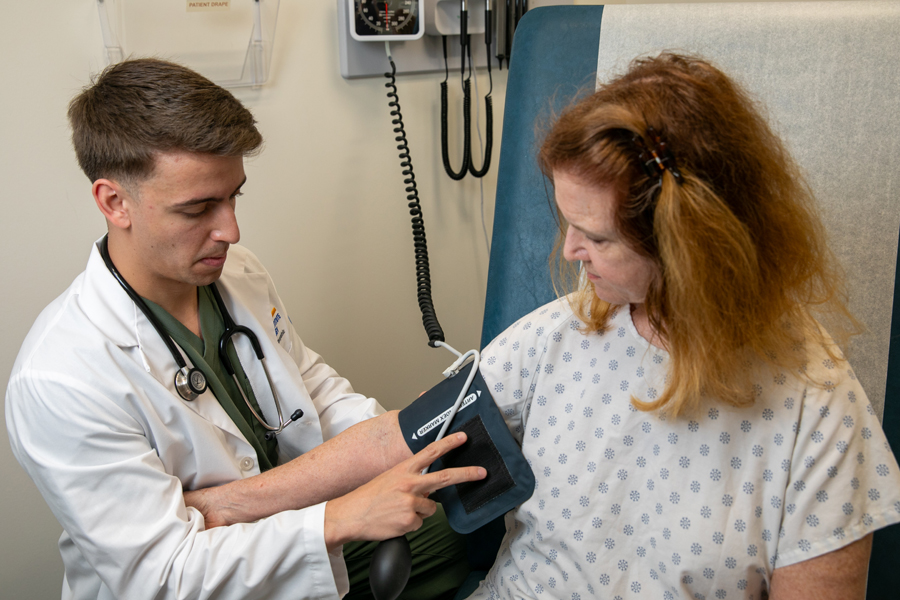Center for Offsite Construction Helps to Establish Modular Interface Standards
The Center for Offsite Construction in the School of Architecture and Design is collaborating with the International Code Council to develop critical standards for modular construction. This effort aims to enhance quality, sustainability, resilience, and affordability in the construction industry by establishing clear guidelines for the connection and configuration of modular components.

The standard will address requirements such as the location and specifications of module-to-module and building-to-module connections for essential building systems; the standardization of dimensions for modular components; and coverage for componentized, panelized, and modularized elements.
“We are excited to collaborate with the Code Council on developing a standard that will transform how modular components are designed and connected,” says Jason Van Nest, M.Arch., director of the Center for Offsite Construction. “This partnership will support the growth of industrialized construction methods and ensure that offsite construction systems meet the highest standards of performance and interoperability.”
“The School of Architecture and Design is committed to preparing professionals who will shape the future of the built environment. Meaningful collaboration with industry partners is essential to our mission,” says Dean Maria R. Perbellini, M.Arch. “We are proud that the Center for Offsite Construction positions New York Tech among the first academic institutions in the nation entrusted to lead the development of standards. This partnership with the International Code Council not only highlights the importance of academic research in advancing industry practices but also reflects our dedication to fostering innovation and rigor and to making a significant impact on the field at the national level.”
“The Code Council is pleased to partner with the Center for Offsite Construction to create a standard that helps address some of the key challenges in advancing deployment of offsite construction, including supporting a project pipeline for factories, bringing certainty to developers through the availability of multiple sources for components, and increasing efficiency of the fabrication and approval processes,” says Ryan Colker, executive director, of energy, resilience, and innovation for the Code Council.
This collaboration reflects a shared vision of modernizing the construction industry by developing consistent and rigorous standards. By promoting compatibility and interoperability, the new standard is expected to accelerate the adoption of offsite construction practices in various applications, including multifamily housing, commercial developments, and institutional projects.
More News

School of Architecture and Design Student and Faculty Work Displayed at NYCxDESIGN
The School of Architecture and Design returned to the NYCxDESIGN Festival with its Future by Design series.

Feeling Like Herself Again
For Disability Pride Month, Director of HEOP Rachel Morrison, M.S.Ed. (M.S. ’15), talks about the moment she realized she had become disabled, how she struggled to embrace her identity as a person with multiple disabilities, and how ultimately identifying with that title helped her feel like herself again.

Medical Student Recognized for Cardiovascular Research
NYITCOM student Jac Lun Lin will investigate how reduced levels of testosterone put men at a higher risk for developing vascular metabolic complications.

$1 Million Grant Supports the Institute for Design Research and Innovation at the School of Architecture and Design
The three-year IDC Foundation grant supports the establishment of the IDC Institute for Design Research and Innovation, creating an integrated ecosystem of the school’s facilities, labs, and centers on the Long Island and New York City campuses.

This Summer, Don’t Let Dehydration Ruin Your Workout
Sports medicine physician Hallie Zwibel, D.O., shares tips to stay hydrated during summer exercise.

The Ferrara Center for Patient Safety and Clinical Simulation Achieves Full Accreditation in Human Simulation
The center received full accreditation from the Association of Standardized Patient Educators, joining an elite group of institutions dedicated to advancing the science and art of simulation-based education for future healthcare professionals.